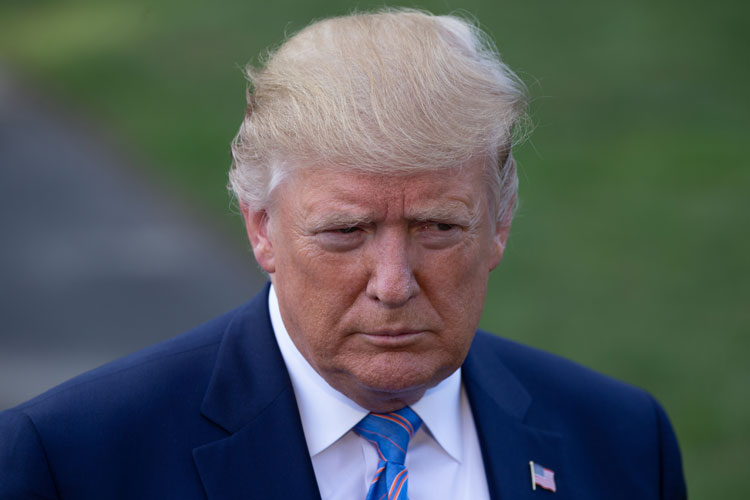Supreme Court arguments on Trump financial subpoenas suggest differing outcomes in the cases

President Donald Trump. Photo from Shutterstock.com.
The U.S. Supreme Court could split in its decisions in President Donald Trump’s fight against subpoenas for his tax and financial records, remote oral arguments indicated Tuesday.
The decisions could differ based on the entity seeking the information, report the Washington Post, SCOTUSblog and the New York Times.
A majority of justices appeared to side with Manhattan prosecutors seeking records in connection with their investigation of hush-money payments made before the 2016 presidential election, according to the New York Times. The case is Trump v. Vance.
Two prior Supreme Court decisions appear to support the prosecutors.
One is United States v. Nixon, in which the Supreme Court ruled in 1974 that President Richard Nixon had to comply with a trial subpoena seeking his White House tapes. The second is Clinton v. Jones, in which the Supreme Court ruled in 1997 that federal courts were not required to stay a civil harassment suit by Paula Jones against President Bill Clinton while he was in office.
The other two subpoena cases before the Supreme Court are Trump v. Mazars and Trump v. Deutsche Bank.
In those cases, three House committees had sought financial records while investigating foreign election influence and the adequacy of disclosure laws. In those cases, justices appeared more likely to side with Trump in his argument that the committees had not sought the information for a permissible legislative purpose.
The arguments also suggested a possible third result, according to the New York Times. The Supreme Court could send the cases back to lower courts for another look using stricter standards of need.



